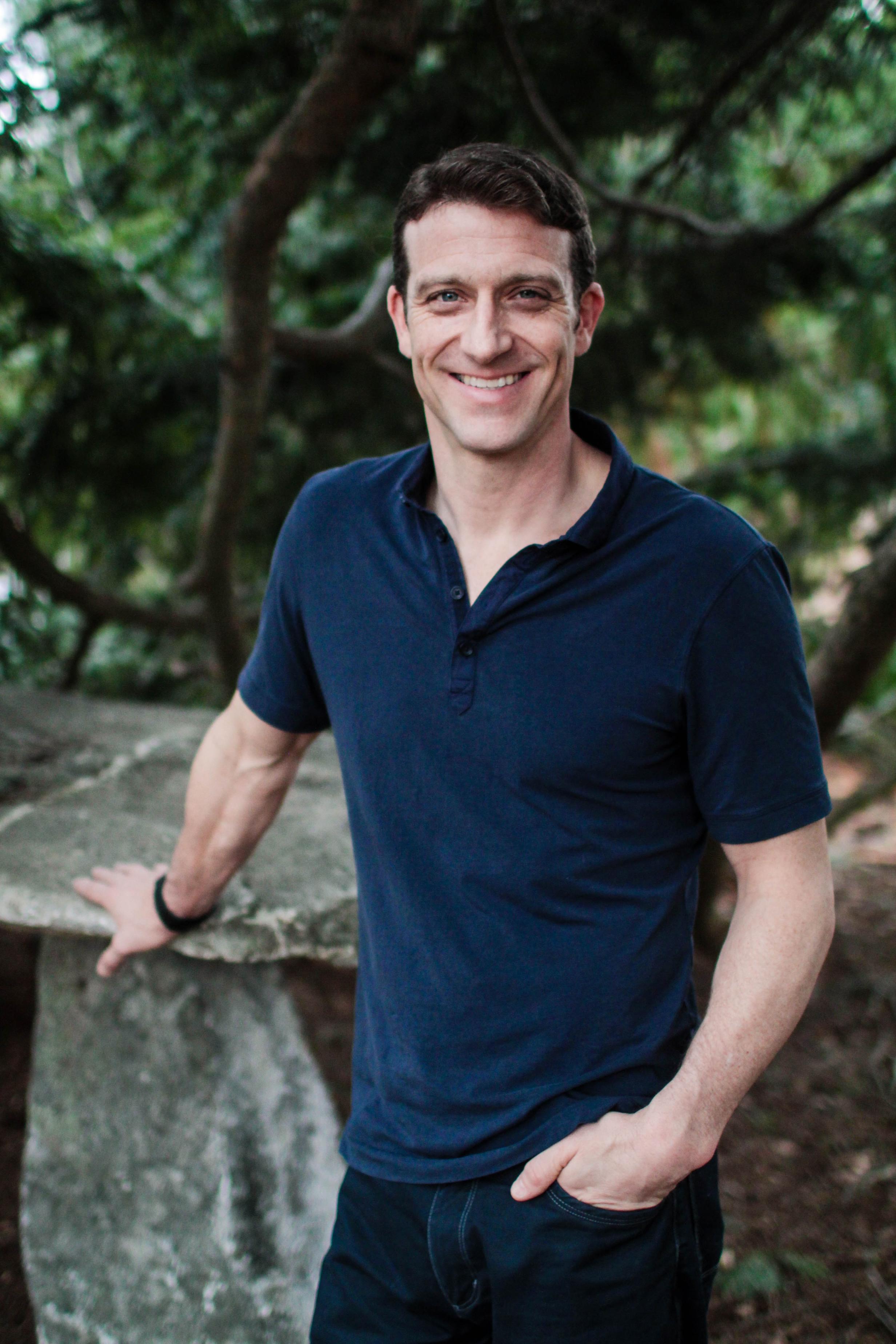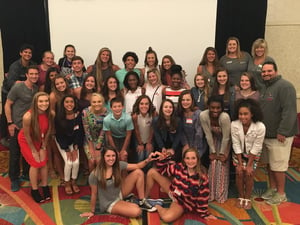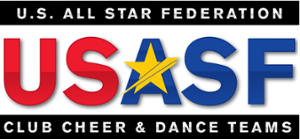Boost Your Parent Toolbox
November 16, 2020 | Dr. Russell Kennedy
November 16, 2020 | Dr. Russell Kennedy

Navigating youth sports can be quite an adventure, both for the athlete AND the parent. Athletes need security and a support system at home and many parents find it helpful to have tools in their toolbox and a map ready to go before they hit the road, ensuring their athlete’s experience is an enriching one.
USASF reached out to Dr. Russell Kennedy, health and sport psychologist and wellness specialist, and asked him a few questions about finding a home in All Star for your athlete, supporting their mental well being and advocating for them. Keep reading to find resources and advice you can add to YOUR toolbox — including some of Dr. Kennedy’s Wellness Essential videos found below!
Q: [USASF] When a parent makes the decision to enroll their child in a competitive sport such as All Star, what steps should they take to educate themselves as a consumer to ensure it is a great fit for their child?
A: [Dr. Russell Kennedy] Sports are such an important part of American culture and when a young child decides to become an athlete of a certain kind, it's hard to get in their way. This becomes a good opportunity to use that sport as a vehicle to work with the child in ways that allow them to learn other life skills. So when an athlete asks a parent or guardian to participate it becomes an important moment; kids get to talk to their parents and make the process one they venture on together.
I think it's more important for parents to educate themselves about All Star. This is not your grandmother's cheerleading or dance and a lot of parents don't really understand what it's like; not just the sport itself but also what appropriate behavior within the sport looks like. Ask questions like:
That way we can really create a safe place for athletes to grow into themselves and into who they’re going to be while also providing a place where they know they have full support. And of course, after looking for some programs in the area it might be important to go online and read about others’ experiences, see if it sounds like a place your family could make home.
Q: [USASF] Parents are the greatest advocates for their children. How do parents advocate for their child in a supportive and healthy manner that allows the child to grow and learn from their All Star experience?
A: [Dr. Kennedy] Parents are the greatest advocates for their children and it’s important they understand that being an advocate is different than being a coach. An advocate is someone who's going to speak for the child and keep the child safe, making sure the environment is one that promotes their growth as an athlete. Many parents feel it important to try to help their kids in a technical way by making comments about their tumbling or turns, checking in with them to make sure they’re training “enough”.
I think it's more important to ask them questions like:
These questions can lead to excellent discussions and a closeness to your child that can continue once they’re done with All Star. In this situation, you're practicing a good communication set, one where you offer support and advocate but don’t take over. Allow your athlete to learn to take the reign of their own life, make their own decisions and create their own work ethic. Support their autonomy. At the end of the day, an athlete doesn’t need another coach, they need support. They need a person making sure they're getting a good meal, staying hydrated and sleeping well.
Q: [USASF] We hear a lot about the importance of mental health support in youth. What is your advice for parents about providing mental health support to a competitive athlete?
A: [Dr. Kennedy] A lot of parents have reached out recently regarding the mental health of their athletes, especially during this season of COVID and the crazy pandemic world. It's been a place where many athletes have lost their coping mechanisms and support. They can’t go out and do the things they love or see their friends. They’ve realized that participating in All Star and those relationships were therapeutic for their mental well being.
When the therapeutic aspects of one's life are taken away you start to see emotional instability and difficulty managing emotions.
You can really see that having a good connection with your athlete during the process of development, especially during high school and growth spurts, where you can normalize the experience of growth, the awkwardness of getting used to a body that is developing, as well as getting used to a mind that is developing and emotions that are becoming more complex, is imperative.
Most youth athletes are still developing resilience and learning how to bounce back from difficult emotional places. And a lot of these kids are angry and confused about the situation they are in. So when we think about mental well being we have to understand it's very contextual and it has a lot to do with the environment we’re in.
The best advice I would give to parents is to make sure to enforce a good connection with your athletes.
This is a really good place for you to develop and grow your connection with your athlete. And connect with the coach. Ask about your athlete.
Q: [USASF] Please offer some advice for parents when their child comes home from a hard practice or a disappointing performance.
A: [Dr. Kennedy] When an athlete approaches me, discouraged because they felt their performance was substandard, I give them a moment to voice what they're thinking and what they're feeling. (It's a great opportunity for someone to start formulating how to construct what they're feeling in a way that can be understood by another person.) That kind of connection, being able to talk with another person, especially about something unpleasant such as a poor performance, is a great place for parents to learn some really good listening skills. A moment of disappointment can be a great place to connect with your athlete. Empathize with them. Sympathize with them; let them know about times you’ve felt the same way and how it helped you grow as a person. I think it's really important that athletes understand there is a journey and a process — and that process has peaks and valleys. If we can accept the peaks and valleys as the process, they don't really have different meanings to us. They are both part of the greater meaningful experience. It’s no longer about the victory or the loss, it's about the journey.
 Let’s all make a place that encourages athletes to experience highs and lows as part of the journey. Step one would be to open your ears before you open your mouth. Hear them and listen, understand the perspective they’re taking and find a way to connect with them over that perspective.
Let’s all make a place that encourages athletes to experience highs and lows as part of the journey. Step one would be to open your ears before you open your mouth. Hear them and listen, understand the perspective they’re taking and find a way to connect with them over that perspective.
There's an old Japanese proverb that says, “if you fall seven times, you get up eight”, and I think that sound of resilience is the take-home message.
Yep, we’re going to have great days and some not-so-great days. We should just be thankful we have days. In the gym, on this earth, with these wonderful people. Always strive to find a way to turn it back to gratitude, a place of shared connection. Find a place to help them connect with others and create a space for problem solving and growth. Turn the stumbling stones into building blocks.
 Dr. Russell Kennedy has over 30 years of experience coaching athletes and is a former NCAA Division 1 gymnast for Syracuse University. His current sports practice includes a strong focus on helping athletes with mental blocks as well as assisting coaches in how to best motivate and work with their athletes who are struggling. He values and respects human diversity in all its many expressions. Russ was a behavior change coach for the NIH-funded study, CALERIE, at Jean Mayer USDA Human Nutrition Research Center on Aging at Tufts University. This study investigated eating, weight management, and longevity over two years. He was a molecular biologist in his first career, investigating novel immunotherapy treatments in Boston.
Dr. Russell Kennedy has over 30 years of experience coaching athletes and is a former NCAA Division 1 gymnast for Syracuse University. His current sports practice includes a strong focus on helping athletes with mental blocks as well as assisting coaches in how to best motivate and work with their athletes who are struggling. He values and respects human diversity in all its many expressions. Russ was a behavior change coach for the NIH-funded study, CALERIE, at Jean Mayer USDA Human Nutrition Research Center on Aging at Tufts University. This study investigated eating, weight management, and longevity over two years. He was a molecular biologist in his first career, investigating novel immunotherapy treatments in Boston.
Are you interested in contributing to the Parent Connect Newsletter? Contact Sarah Miller Bate at smbate@usasf.net for more information on sharing YOUR story as an All Star Parent.



The U.S. All Star Federation (USASF) has a mission to support and enrich the lives of our All Star athletes and members. We strive to provide consistent rules and safety guidelines, drive competitive excellence and promote a positive image for the sport. The USASF credentials coaches, certifies legality officials and sanctions events - all with the goal to provide the safest possible environment in which athletes may train and compete. Founded in 2003, we are a not-for-profit corporation established in Tennessee and governed by bylaws, officers, a board of directors and fifteen standing committees.
Copyrights © 2023 All Rights Reserved by the U.S. All Star Federation